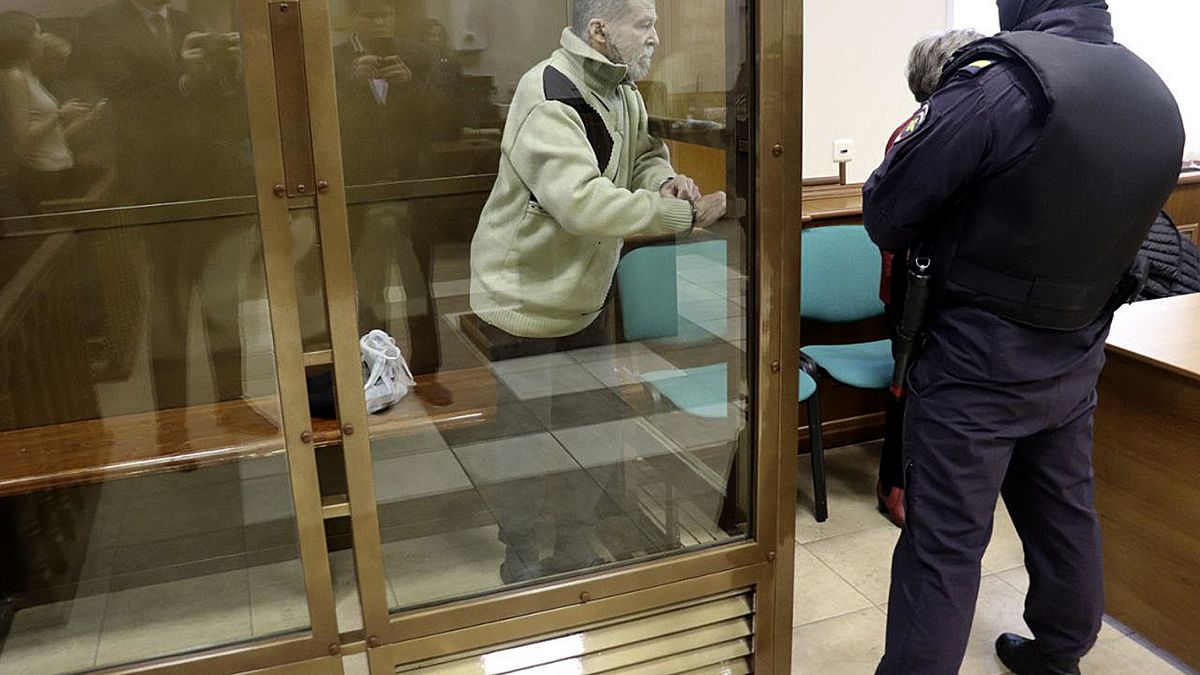In a recent development, a 72-year-old American named Stephen Hubbard has been sentenced to nearly seven years in prison by a Russian court for allegedly fighting as a mercenary in Ukraine. Hubbard, hailing from Michigan, was accused of joining the Ukrainian military after Russia’s invasion in February 2022 and being involved in the conflict until his capture two months later. Despite prosecutors initially seeking a seven-year term in a maximum-security facility, Hubbard received a sentence of six years and 10 months in a general security prison. This case marks the first instance of a US citizen being convicted of fighting as a mercenary in the Ukrainian conflict.
The Russian legal system typically treats foreign fighters in Ukrainian units as mercenaries, despite some of them being integrated into the regular ranks of either the Ukrainian Army or the National Guard of Ukraine. The Kremlin continues to promote the narrative that foreign fighters in Ukraine, including those from the US, are mostly mercenaries with questionable backgrounds, often painting them as extremists or criminals. However, no concrete evidence has been provided to support these allegations. It is worth noting that while Russians constitute the largest group of foreign nationals fighting in the Ukrainian armed forces, US citizens are believed to make up only a small fraction, with just 15 individuals reported to have been involved in the conflict prior to Russia’s full-scale invasion.
This sentencing of Hubbard is part of a broader pattern of American citizens facing arrests in Russia, raising concerns about the possibility of US nationals being targeted for future prisoner swaps. In a separate case on the same day, another American named Robert Gilman was sentenced to seven years and one month for assaulting law enforcement officers. Gilman, who was already serving a sentence for a separate assault, allegedly attacked a prison inspector and an official during a cell check in the previous year. These incidents come in the wake of a significant US-Russia prisoner exchange in August, which involved 24 individuals from multiple countries and was the largest swap since the dissolution of the Soviet Union, indicating ongoing challenges despite the exchange.
Despite the August prisoner swap, several US citizens remain imprisoned in Russia, highlighting the complexities involved in resolving such cases and ensuring the well-being of individuals caught in international legal disputes. The sentencing of both Hubbard and Gilman underscores the harsh legal consequences that foreign nationals may face in Russia, particularly in cases involving allegations of violence or involvement in armed conflicts. The uncertainty surrounding the fate of these imprisoned Americans serves as a reminder of the geopolitical tensions between the US and Russia and the implications for individuals caught in the crossfire.
As the situation unfolds, it remains to be seen how diplomatic efforts between the US and Russia will impact the fate of American citizens detained in Russian prisons. The growing trend of American arrests in Russia underscores the need for clear communication and coordination between the two countries to ensure the fair treatment and potential release of individuals facing legal challenges abroad. The cases of Hubbard and Gilman shed light on the complexities of international law enforcement and the importance of upholding human rights standards in the handling of such cases. Ultimately, the fate of these imprisoned Americans reflects broader issues of diplomacy, human rights, and justice in the context of international conflicts and legal disputes.





























